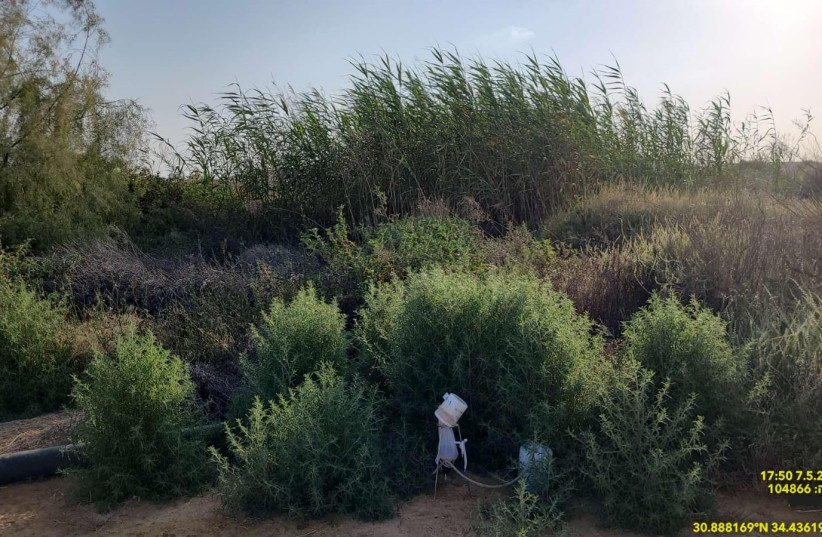Global warming may be the cause of an earlier-than-usual outbreak of mosquitos carrying the West Nile virus in Israel this year, according to Prof. Eli Schwartz, founder of the Center for Travel Medicine and Tropical Diseases at Sheba Medical Center.
Health authorities announced last week that mosquitos carrying the virus were discovered in southern Israel several weeks earlier than usual. The virus usually peaks in July and August. The Environmental Protection Ministry discovered the virus by capturing and monitoring mosquito larvae in its laboratory.
Schwartz said climate change is likely the culprit for these mosquitoes arriving earlier, as warming temperatures have already been seen to impact diseases transmitted by mosquitoes in other places in recent years.
For example, France sounded the alarm last October over tiger mosquitoes that stepped up their activity and led to an unprecedentedly large number of indigenous dengue fever cases in the country. A similar outbreak was reported in Nepal two months later, where more than 54,000 cases of the virus were reported; the majority in Kathmandu Valley, which lies at an altitude of around 1,400 meters above sea level and has therefore previously been spared from large outbreaks of mosquito-borne diseases like dengue.
Higher temperatures make mosquitoes more viable
“Increased warming - climate change - is what led these mosquitoes to be viable and have the ability to transmit disease even at such a high altitude,” Schwartz said, adding that he expects the world to see more anomalies like these in the coming years.

West Nile virus is a zoonotic disease that is transferred from a non-human host (in this case, migrating birds) to humans. Specifically, the virus is transferred when mosquitoes feed on infected birds and then sting humans. In Israel, the virus is transmitted mainly by Culex Pipiens and Culex Perexiguus mosquitoes, which generally attack at night.
Once bitten, the disease incubation period is five to 21 days, and the condition usually lasts three to six days, the Health Ministry said. In general, when the disease strikes young people, it is relatively mild - at most, the individual is expected to experience flu-like symptoms that go away on their own. These can include fever, headache, weakness, joint and muscle pain, conjunctivitis, rash and sometimes nausea and diarrhea.
However, when older or immunosuppressed individuals contract the virus, it can result in rare but acute brain inflammation (encephalitis) or even death.
According to Dr. Oren Shattach Kathabi of the Center for Zoonotic Diseases at the Department of Epidemiology at the Ministry of Health, only one person has died of West Nile virus in the last year. In contrast, according to Schwartz, hundreds of people are annually infected. To date, there is no vaccine for the virus.
How to avoid getting bitten
To avoid being bitten, the Environmental Protection Ministry advises the public to reduce stagnant pools of water, which tend to be breeding grounds for mosquitoes. In addition, the Health Ministry advises that individuals should use insect repellent, reduce areas of skin that could be exposed to bites, turn on fans inside their houses and when sitting outside and install screens on their windows.
A team of researchers at Hebrew University led by doctoral student Daniel Voignac is developing a new material that could protect humans from mosquitoes: A cellulose gel sprayed on the skin and makes skin undetectable.
“Mosquitoes are attracted to human smells, like sweat,” Voignac explained. He tested the gel in a lab by putting his hand covered with the gel in a cage of mosquitoes. They ignored him.
“The mosquitoes flew by and did not recognize me as a source of blood,” he said.
People who believe they are infected with the virus should take a blood test. It can be performed at the National Center for Zoonotic Diseases at the Central Virology Laboratory at Sheba or the virology labs at Rambam Medical Center or Sourasky Medical Center.
A team at Bar-Ilan University led by Dr. Amos Danielli is working on a new technology that can detect the virus even at low concentrations, including marking the antibodies that the immune response generates against the West Nile virus and separating them from the background noise. The new technology is expected to allow doctors to know faster if a person was infected and whether the infection was recent, Danielli said.
